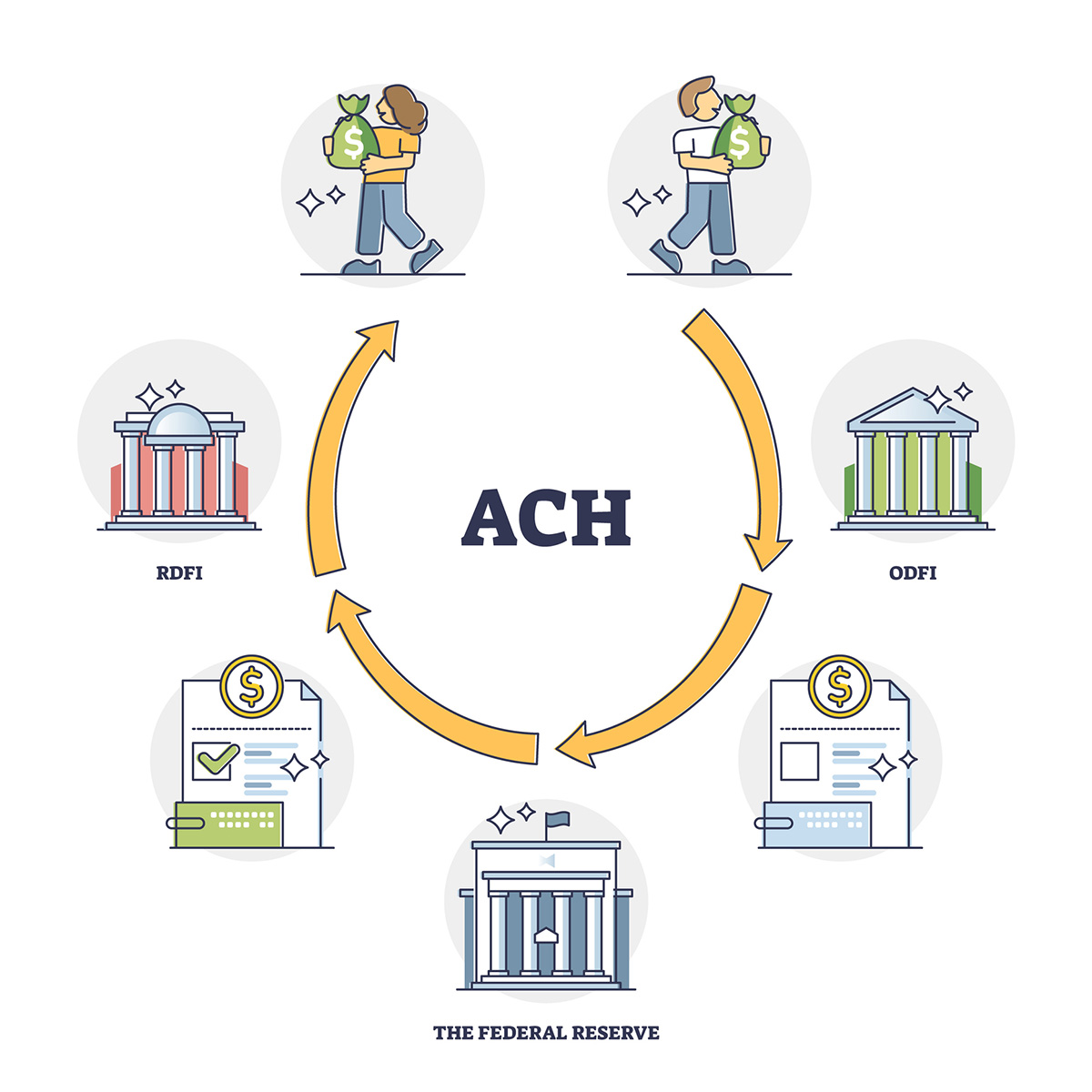

Finance
What Is A DST Investment?
Published: October 18, 2023
Learn all about DST investments and their significance in finance. Discover how this investment strategy can benefit your financial portfolio.
(Many of the links in this article redirect to a specific reviewed product. Your purchase of these products through affiliate links helps to generate commission for LiveWell, at no extra cost. Learn more)
Table of Contents
Introduction
Investing in the financial markets can be a daunting task, especially with the ever-changing landscape and countless options available. One such investment avenue that has gained traction in recent years is the Delaware Statutory Trust (DST). As an investor, understanding what a DST investment is and how it works can provide you with a valuable tool to diversify your portfolio and potentially generate passive income.
A DST investment is a structure that allows individual investors to pool their funds together to invest in a single entity, typically a commercial property. This investment vehicle is permitted under the Delaware Statutory Trust Act and is often used for real estate investments, providing individuals with an opportunity to participate in the ownership of high-quality properties that they may not have been able to invest in individually.
Under a DST investment, investors become beneficial owners of a fractional interest in the property, with a trustee managing the day-to-day operations. It offers a hands-off approach for investors who want to passively invest in real estate without the responsibilities of property management. DST investments are typically structured as a 1031 exchange, which allows investors to defer capital gains taxes from the sale of a previous property by reinvesting the proceeds into a qualified DST investment within a specific time frame.
While there are advantages to investing in DSTs, it’s crucial to understand the risks and limitations associated with this investment vehicle. Like any investment, DSTs come with their own set of advantages and disadvantages, which we will explore in the following sections. Additionally, tax implications play a significant role in DST investments, and investors must be aware of the potential tax consequences before committing to an investment.
If you’re considering a DST investment, evaluating the investment opportunity and understanding key factors to consider are essential. By thoroughly researching and analyzing the offering, you can make an informed decision that aligns with your financial goals and risk tolerance.
In this article, we will delve into the world of DST investments, explore their structure, benefits, drawbacks, and tax implications. We will also guide you on how to evaluate a DST investment opportunity and provide key factors to consider before making an investment decision. By the end, you will have a better understanding of whether a DST investment aligns with your overall investment strategy and objectives.
Definition of DST Investment
A Delaware Statutory Trust (DST) investment is a legal entity established under the Delaware Statutory Trust Act that allows individual investors to own a fractional interest in a property. DST investments are commonly used for real estate investments, enabling investors to pool their funds together and invest in high-quality properties such as commercial buildings, apartments, or even medical facilities.
Under the DST structure, investors purchase beneficial ownership interests in the trust, which in turn holds title to the property. The DST is managed by a trustee who is responsible for all property-related matters, including property management, leasing, and maintenance.
One of the primary benefits of a DST investment is that it allows investors to gain exposure to institutional-quality properties that might be otherwise inaccessible to individual investors. By pooling funds together, individual investors can participate in larger, income-generating properties that provide diversification and potentially higher returns.
DST investments are commonly used in 1031 exchanges, which are transactions that allow investors to defer capital gains taxes on the sale of investment properties. By reinvesting the proceeds from the sale of a property into a qualified DST investment, investors can defer paying taxes and potentially increase their investment capital.
It’s important to note that DST investments are typically categorized as passive investments. As investors, you are not involved in the day-to-day management or decision-making of the property. Instead, you rely on the expertise and experience of the trustee to make informed decisions on your behalf.
Furthermore, DST investments are typically offered through private placements and are only available to accredited investors. To qualify as an accredited investor, individuals must meet certain income or net worth requirements set by the Securities and Exchange Commission (SEC).
Overall, a DST investment offers individual investors the opportunity to participate in commercial real estate ownership without the burden of active property management. It provides diversification, potential tax benefits, and access to larger-scale properties, making it an attractive investment option for those looking to diversify their portfolio and generate passive income.
How Does a DST Investment Work?
Understanding how a Delaware Statutory Trust (DST) investment works is essential for investors looking to participate in this type of passive real estate investment. Here’s a step-by-step breakdown of how a DST investment operates:
- Identification and acquisition of the property: The process begins with the identification and acquisition of a property by a sponsor, typically a company specializing in DST investments. The sponsor identifies a property that meets the criteria outlined in the investment offering.
- Creation of the DST: Once the property is identified, a DST is created as a separate legal entity. The DST becomes the owner of the property, and investors can then purchase beneficial ownership interests in the trust.
- Investor contribution: Individual investors contribute funds to the DST based on their desired investment amount. The minimum investment requirements can vary depending on the specific DST offering.
- Ownership interests: Investors receive ownership interests in the DST in proportion to their contribution. These ownership interests represent a fractional ownership in the property, entitling investors to a share of the income, expenses, and potential appreciation of the property.
- Appointment of trustee: The DST appoints a trustee who is responsible for managing the day-to-day operations of the property. The trustee handles property management, leasing, maintenance, and other necessary tasks on behalf of the investors.
- Passive investment: As investors, your role is primarily passive. You do not have direct control over the property or decision-making authority. Instead, you rely on the expertise and experience of the trustee to make informed decisions on behalf of the DST.
- Distribution of income: The income generated from the property, such as rental income or profits from the sale of the property, is distributed to the investors in proportion to their ownership interests. These distributions are typically made on a regular basis, such as monthly, quarterly, or annually.
- Exit strategy: At some point, the DST may choose to sell the property. When this occurs, the proceeds from the sale are distributed to the investors according to their ownership interests. Alternatively, the DST may decide to refinance the property or engage in other strategies to maximize returns for investors.
It’s important to note that DST investments typically have a fixed life span, which is outlined in the investment offering. Once the specified term has elapsed, the DST is dissolved, and the property is either sold or disposed of according to the predetermined exit strategy.
By participating in a DST investment, individual investors can access commercial real estate opportunities, generate potential income, and enjoy the benefits of passive ownership without the day-to-day responsibilities of property management.
Advantages of DST Investments
Delaware Statutory Trust (DST) investments offer a range of advantages for investors looking to diversify their portfolio and participate in the commercial real estate market. Here are some key advantages of investing in DSTs:
- Access to institutional-quality properties: DST investments provide individual investors with an opportunity to invest in high-quality commercial properties that may be otherwise inaccessible. By pooling funds together, investors can gain exposure to larger-scale properties such as office buildings, retail centers, or multi-family apartments, which can offer potential higher returns and diversification.
- Passive ownership: One of the main advantages of a DST investment is the passive nature of ownership. Investors do not have to worry about the day-to-day responsibilities of property management, such as tenant relations, maintenance, or leasing. The trustee appointed by the DST handles these tasks, allowing investors to enjoy the benefits of real estate ownership without the burdens of active involvement.
- Diversification: Investing in DSTs can provide diversification to an investment portfolio. By participating in properties across different locations or sectors, investors can spread their risk and potentially reduce exposure to any single property or market. This diversification can help mitigate the impact of fluctuations in any one asset and enhance the overall stability of an investment portfolio.
- Potential tax benefits: DST investments are commonly used in 1031 exchanges, which allow investors to defer capital gains taxes on the sale of investment properties. By reinvesting the proceeds into a qualified DST investment, investors can potentially defer paying taxes and have more capital available for investment. It’s important to consult with a tax advisor to understand the specific tax implications related to your investment.
- Professional management: DST investments are managed by experienced professionals who have expertise in property management and investment strategies. Investors can benefit from the knowledge and experience of these professionals, who are responsible for making strategic decisions regarding property operations, leasing, and potential value-add opportunities.
- Lower investment thresholds: DST investments offer access to the commercial real estate market with lower minimum investment thresholds compared to direct property ownership. This allows individuals with smaller capital to participate in the ownership of high-quality properties that may have been otherwise unattainable.
It’s important to note that while DST investments offer numerous advantages, they also come with their own set of risks and limitations. Investors should carefully consider these factors and conduct thorough due diligence before deciding to invest in a DST. Evaluating the track record of the sponsor, understanding the terms and conditions of the investment offering, and assessing the potential risks are crucial steps in determining whether a DST investment aligns with your investment goals and risk tolerance.
Disadvantages of DST Investments
While Delaware Statutory Trust (DST) investments offer unique advantages, it’s important for investors to consider the potential drawbacks before committing to this investment vehicle. Here are some key disadvantages of investing in DSTs:
- Limited control and decision-making: As an investor in a DST, you have limited control over the property and decision-making processes. The trustee appointed by the DST is responsible for managing the property and making key decisions on behalf of the investors. This lack of control means you are reliant on the expertise and judgment of the trustee, which may not align perfectly with your investment preferences or strategies.
- Lack of liquidity: DST investments are typically illiquid, meaning they cannot be easily converted into cash. Unlike publicly traded investments, such as stocks or mutual funds, selling your ownership interest in a DST may be challenging. DSTs usually have predetermined holding periods, and early withdrawals or sales of ownership interests are heavily restricted.
- Investment risks: Like any investment, DSTs come with inherent risks. The performance and success of the investment are contingent on various factors, including the property’s occupancy, rental rates, and market conditions. Economic downturns, changes in market demand, or unexpected expenses can negatively impact the investment’s return potential and overall profitability.
- No direct property ownership: While DST investors hold beneficial ownership interests in the trust, they do not have direct ownership of the underlying property. This lack of direct ownership means you cannot individually sell or leverage the property as you would with direct real estate ownership.
- Fees: DST investments typically involve various fees, such as upfront fees, management fees, and potential performance-based fees. These fees can have an impact on the overall returns of your investment and should be carefully evaluated and compared to alternative investment options.
- Potential for capital loss: There is a risk of capital loss in DST investments. If the property’s value decreases or the investment does not perform as anticipated, investors may experience a loss of their initial investment.
It’s crucial for investors to thoroughly evaluate the risks and limitations of DST investments and assess whether these align with their investment goals, risk tolerance, and overall investment strategy. Conducting thorough due diligence, reviewing the investment offering documents, and consulting with financial professionals can help investors make informed decisions and mitigate potential risks.
Tax Implications of DST Investments
Understanding the tax implications of Delaware Statutory Trust (DST) investments is essential for investors considering this type of real estate investment. Here are some key tax considerations associated with DST investments:
- 1031 exchange potential: DST investments are commonly structured as 1031 exchanges, which allow investors to defer capital gains taxes on the sale of a previously owned property. By reinvesting the proceeds from the sale into a qualified DST investment, investors can potentially defer paying taxes and continue to grow their investment capital. However, it’s crucial to ensure that the DST investment qualifies for a 1031 exchange and meets all the necessary requirements as outlined by the Internal Revenue Service (IRS).
- Pass-through taxation: DSTs are typically structured as pass-through entities for tax purposes. This means that the income, deductions, and tax attributes of the property flow through to the individual investors. Each investor reports their share of the income and deductions on their personal tax returns and is responsible for paying taxes on their portion of the income generated by the DST. The specific tax treatment may vary depending on the investor’s individual tax situation, so consulting with a tax advisor is recommended.
- Depreciation benefits: As an investor in a DST, you may be eligible to receive a share of the property’s depreciation deductions. Depreciation allows for the gradual deduction of the property’s cost over its useful life, reducing taxable income and potentially providing tax benefits for investors. The specifics of depreciation deductions and allocation depend on the DST’s offering documents and tax regulations.
- Tax reporting requirements: Investors in DSTs are provided with Schedule K-1 forms, which outline their share of income, expenses, deductions, and other tax-related information. This information is used to report the investor’s portion of the DST’s income and deductions on their personal tax return.
- State and local taxes: In addition to federal taxes, DST investors may also be subject to state and local taxes. Each state may have its own tax laws and regulations, so it’s important to consider the potential impact of state and local taxes on your DST investment. Consulting with a tax professional who is familiar with the tax laws of your specific state is recommended.
It’s crucial to remember that tax laws and regulations are subject to change, and the specific tax implications of DST investments will depend on individual circumstances. As with any investment, consulting with a knowledgeable tax advisor or accountant is essential to understand the potential tax consequences and ensure compliance with tax laws.
Furthermore, it’s important to note that this information is provided as a general overview and should not be construed as tax advice. Each investor’s tax situation is unique, and it’s recommended to consult with a qualified tax professional for personalized advice based on your specific circumstances.
How to Evaluate a DST Investment Opportunity
When considering a Delaware Statutory Trust (DST) investment, it’s crucial to perform thorough due diligence and evaluate the opportunity carefully. Here are some key factors to consider when evaluating a DST investment:
- Track record of the sponsor: Research the track record and reputation of the DST sponsor or company offering the investment. Evaluate their experience in managing DSTs and their performance history. Look for sponsors with a proven track record of successful property acquisitions, management, and favorable investor outcomes.
- Property quality and location: Carefully assess the property being offered for investment. Consider factors such as location, market conditions, potential rental income, and the overall quality of the property. A thorough understanding of the property’s potential for appreciation and income generation is crucial for evaluating the investment’s potential returns.
- Financial projections and returns: Review the financial projections provided by the DST sponsor. Assess the assumed occupancy rates, rental income, expenses, and potential cash flow. Consider the projected returns and ensure they align with your investment goals and risk tolerance.
- Debt structure: Understand the debt structure of the DST investment. Assess the loan terms, interest rates, maturity date, and potential risks associated with the debt. A thorough understanding of the debt structure is essential for assessing the investment’s financial stability and potential risks.
- Terms and conditions: Read and understand the terms and conditions outlined in the DST offering documents. Pay attention to fees, restrictions, responsibilities, and any potential limitations associated with the investment. Evaluate the exit strategy and understand the options available for liquidation or sale of the investment.
- Capitalization rate: Evaluate the capitalization rate, also known as the cap rate, of the property. The cap rate is a ratio that indicates the potential return on the investment based on the property’s net operating income and purchase price. A higher cap rate may indicate a potentially higher return but could also come with higher associated risks.
- Expert advice: Consider seeking advice from professionals experienced in real estate and DST investments. Consult with trusted financial advisors, tax professionals, and legal experts who can provide guidance and help you assess the investment’s suitability for your specific circumstances.
Thoroughly evaluating a DST investment opportunity requires careful consideration of these factors. Conducting due diligence and understanding the risks and potential returns associated with the investment can help you make an informed decision that aligns with your investment goals and risk tolerance.
It’s important to note that investing in DSTs involves risks, and past performance is not indicative of future results. Each investor’s situation is unique, and it’s recommended to consult with professionals who can provide personalized advice based on your specific circumstances and financial objectives.
Key Factors to Consider Before Investing in a DST
Before making an investment in a Delaware Statutory Trust (DST), it’s important to carefully consider several key factors. Evaluating these factors can help you make an informed investment decision that aligns with your financial goals and risk tolerance. Here are the key factors to consider:
- Investment objectives: Define your investment objectives and determine how a DST investment fits into your overall investment strategy. Consider your desired level of involvement, risk tolerance, and expected returns. Determine whether a DST investment aligns with your long-term financial goals.
- Due diligence: Perform thorough due diligence on the DST offering. Review the offering documents, financial projections, and other relevant information provided by the sponsor. Understand the property, market conditions, and potential risks associated with the investment.
- Investment horizon: Consider your investment horizon and how long you are willing to commit your capital. DST investments typically have fixed holding periods, and early withdrawal or sale may be limited. Evaluate whether the investment’s time frame aligns with your investment goals.
- Risk assessment: Assess the risks associated with the specific DST investment. Understand the potential risks related to the property, such as market volatility, tenant vacancies, or changes in interest rates. Evaluate how the risks align with your risk tolerance and investigate potential mitigation strategies.
- Tax implications: Consider the tax implications of investing in a DST. Understand the potential tax benefits, such as deferral of capital gains through a 1031 exchange, as well as the tax reporting requirements and potential tax liabilities associated with the investment. Consult with a tax professional to fully understand the tax implications specific to your situation.
- Sponsor reputation: Research the reputation and track record of the DST sponsor. Evaluate their experience in managing DST investments and their history of successfully operating properties. A reputable sponsor with a solid track record may provide greater confidence in the investment’s potential for success.
- Exit strategy: Evaluate the exit strategy outlined in the DST offering documents. Understand the options available for liquidation or sale of the investment at the end of the holding period. Consider how the exit strategy aligns with your investment objectives and potential liquidity needs.
- Portfolio diversification: Assess how the DST investment fits into your overall investment portfolio. Consider your existing investments and determine whether a DST investment provides diversification benefits by adding exposure to a different asset class or market segment.
- Professional advice: Seek guidance from trusted financial advisors, legal professionals, and tax experts who specialize in DST investments. Professionals with relevant expertise can provide valuable insights and help you navigate the complexities of evaluating and investing in DSTs.
Considering these key factors before making a DST investment can help you make a well-informed decision. It’s essential to thoroughly understand the investment opportunity, evaluate the potential risks and returns, and ensure that the investment aligns with your investment goals and risk tolerance.
Remember, each individual’s financial situation is unique, and it’s important to consult with professionals who can provide personalized advice based on your specific circumstances and objectives.
Conclusion
Delaware Statutory Trust (DST) investments can offer individual investors an opportunity to participate in the commercial real estate market and potentially generate passive income. By pooling funds together and investing in high-quality properties, investors can access institutional-grade assets that may be otherwise unattainable. However, it’s crucial to consider the advantages, disadvantages, and key factors before committing to a DST investment.
DST investments provide several advantages, including access to larger properties, passive ownership, potential tax benefits, professional management, and lower investment thresholds. These benefits make DSTs an attractive option for diversifying a portfolio and generating income without the day-to-day responsibilities of property management.
However, DST investments also come with potential disadvantages, such as limited control and decision-making, lack of liquidity, investment risks, and fees. Thoroughly evaluating these disadvantages, along with conducting proper due diligence, can help investors make informed decisions and mitigate potential risks.
When considering a DST investment, it’s vital to assess key factors such as the track record of the sponsor, property quality and location, financial projections and returns, debt structure, and the terms and conditions of the investment. Seeking advice from professionals and consulting with experts can provide valuable insights and help investors understand the potential risks and benefits associated with the specific DST opportunity.
In conclusion, a DST investment can be a valuable addition to an investment portfolio for individuals seeking exposure to commercial real estate without the burden of active management. By understanding the intricacies of DST investments and carefully evaluating the opportunity, investors can make informed decisions that align with their financial goals and risk tolerance.
However, it’s important to note that investing in DSTs involves risks, and individual circumstances may vary. Therefore, it’s wise to conduct thorough research, seek professional advice, and consider personal financial objectives before committing to a Delaware Statutory Trust investment.














